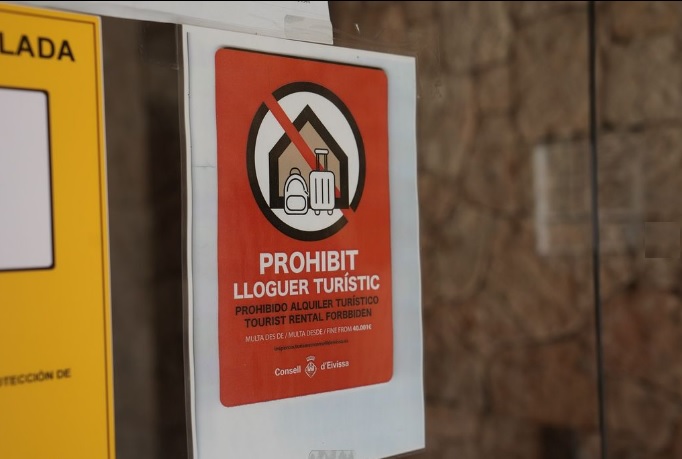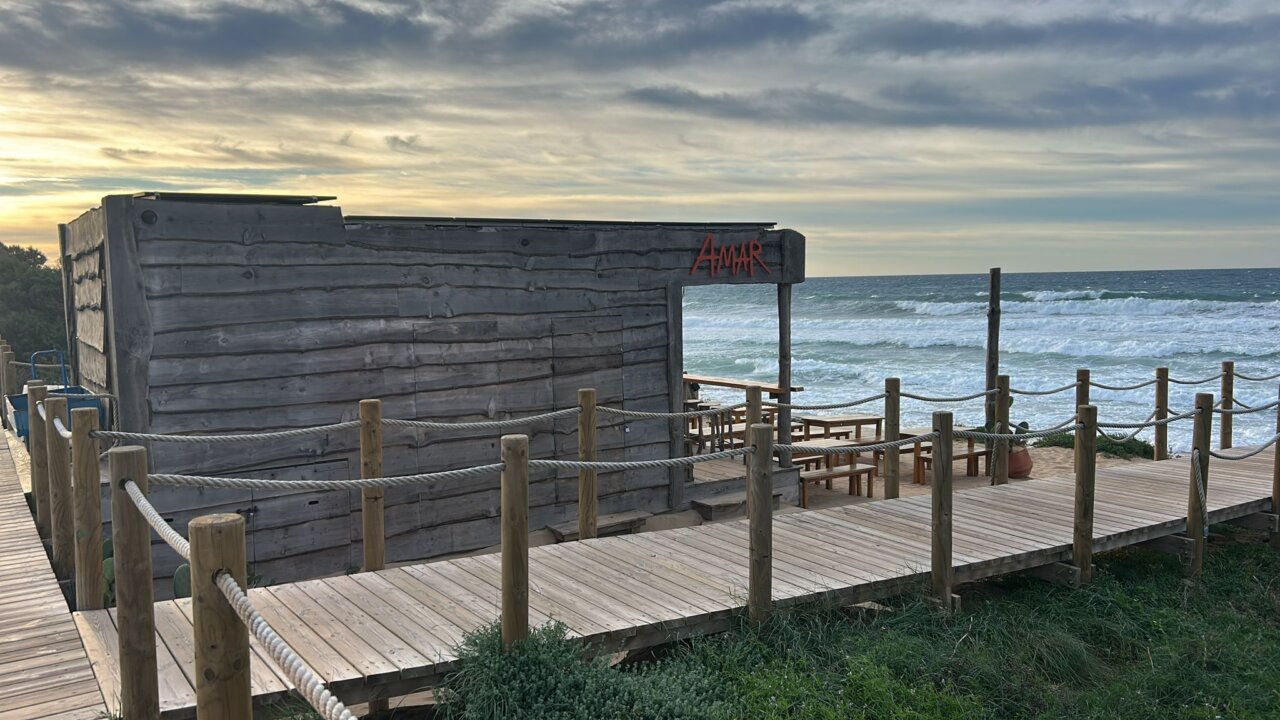The Administrative Court of Palma has annulled a sanction of the Consell de Ibiza for intrusiveness to a worker who rented a room in her own house, considering that this practice is not typified as an infraction in the Tourism Law of the Balearic Islands.
After three years of proceedings, the court has issued sentence 512/2025, dated October 31, which annuls a sanction imposed by the Consell to a resident of Ibiza for renting a room in her habitual residence to tourists.
According to the ruling, the action of the Island Administration lacks legal backing, since the Autonomous Tourism Law (LTIB) does not contemplate sanctions for this type of leases.
The legal defense, led by lawyer Michele Tortorici, succeeded in getting the judge to annul the sanction imposed by the Consell de Ibiza, considering it “null and void”.
“The sanctioned conduct does not fit in the type of sanctioning of art. 105 g) LTIB”, states the ruling that is in possession of La Voz de Ibizaaligning itself with the thesis defended from the beginning of the process.
The aforementioned article corresponds to the infractions in matters of tourist marketing included in Law 8/2012 of Tourism of the Balearic Islands, but the autonomous legislation only regulates and sanctions the tourist rental of complete dwellings, leaving without legal coverage the leasing by individual rooms.
A legal loophole
The ruling states that the Balearic Law expressly limits the tourist rental activity to the “temporary assignment of the entire residential dwelling, and not by rooms”, which excludes this practice from the sanctioning regime.
Along these lines, Article 50.15 of the LTIB leaves out room contracts until there is a specific regulation, which has not yet been approved.
This lack of regulations has been a determining factor in the judge’s verdict, which reinforces his reasoning in the principle of legality of penalties enshrined in Article 25.1 of the Spanish Constitution, which prohibits penalizing by analogy conducts not expressly typified.
The judicial text is also supported by the consolidated case law of the Constitutional Court and the Supreme Court, which prevents any extensive interpretation to the detriment of the administered party.
“If the law does not expressly say that renting a room in your house is an infraction, the Administration cannot invent the sanction,” the lawyer stressed to La Voz de Ibiza.
Sanctioning policy questioned
The resolution of the Court not only overturns a specific sanction, but also questions the entire sanctioning policy of the Consell de Ibiza in relation to the tourist rental of rooms.
According to the defense, the Consell has been imposing fines for years for a conduct that the law does not consider an infraction.
“The most serious aspect of the matter is not only that the sanctions are illegal, but the devastating consequences they have had for dozens, perhaps hundreds, of Ibiza residents who were simply trying to make ends meet on an island where the cost of living has become unsustainable,” Tortorici denounces.
The affected woman, the protagonist of this first judicial precedent,“suffered the pledging of her bank accounts and was subjected to a situation of economic ostracism,” having to face a penalty of an amount that is described as “unbearable”.
His only “crime”, according to the defense, was to rent a room in his usual residence in order to be able to afford the very high costs of living in Ibiza.
A precedent that marks a change
The lawyer argues that the structural problem lies in a system that imposes disproportionate fines and suffocates citizens economically, trusting that they will not be able to withstand the judicial process.
“They sanction you with exorbitant amounts, they suffocate you economically, and they bet that you won’t have the resources or the stamina to go to court. The Consell knew perfectly well that the majority would not appeal,” he stresses.
In this regard, Tortorici emphasizes that any person who receives a sanction for renting rooms in his or her habitual residence has a firm precedent to appeal it judicially.
However, it warns that those who did not appeal in time, accepted the penalty or let the procedural terms expire, have probably lost the possibility of recovering the amount paid.
“This sentence establishes a clear judicial interpretation: this conduct is not typified in the LTIB and therefore cannot be sanctioned. But to get to this point we had to appeal and endure three years of proceedings,” he stresses.
Turning point
The lawyer emphasizes that this resolution“does not represent a step backwards in the fight against tourist intrusion, but rather a resounding affirmation that public administrations cannot act arbitrarily, sanctioning citizens for conduct that the law has not prohibited”.
“The LTIB expressly regulated and restricted the assignment of the entirety of a residential dwelling for tourist purposes. But it deliberately left out the rental of individual rooms, pending a specific regulation that never came,” he insists.
Finally, Tortorici underlines the value of the sentence as an example of resistance and justice: “This sentence is the result of three years of work, of rigorous legal analysis and of the resistance of a client who trusted when all seemed lost. The merit goes to the judge, who has been able to see what the rule clearly stated and that the Consell preferred to ignore. And it is a victory for all the residents of Ibiza who are trying to survive on an increasingly expensive island“, he concludes.
Continue reading:
-
Formal establishment of the Board against intrusiveness of Ibiza with the participation of digital platforms for tourist accommodation
-
Total elimination of illegal ads on Airbnb: Ibiza hoteliers celebrate the measure but downplay its impact
-
Ibiza marks a milestone in Spain by removing from Airbnb 100% of illegal offers
-
Ibiza boasts figures in its war against illegal rentals and confirms final deadline to delete pirate apartments from Airbnb










